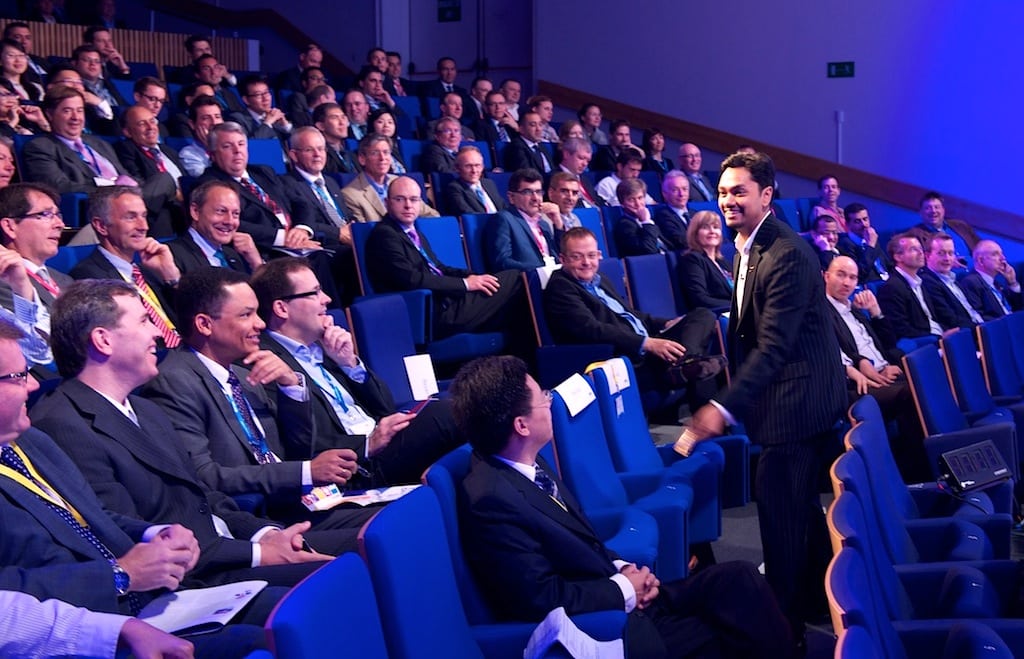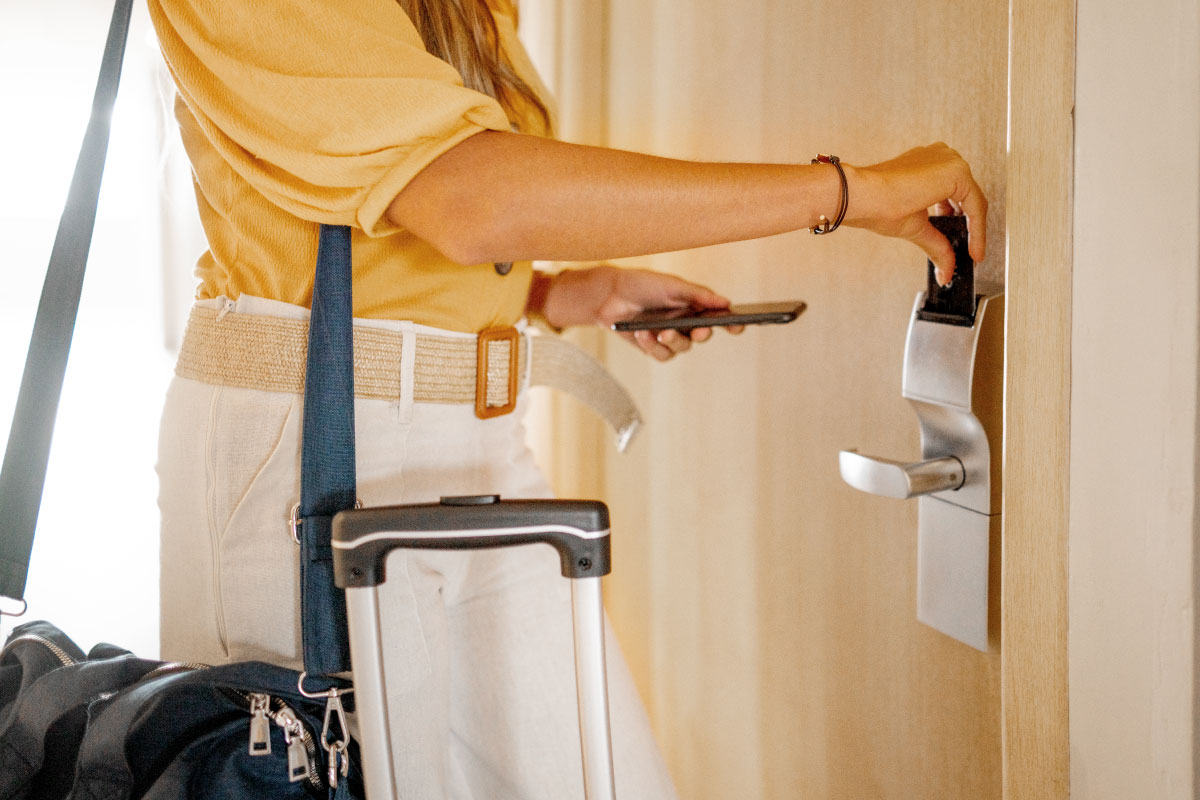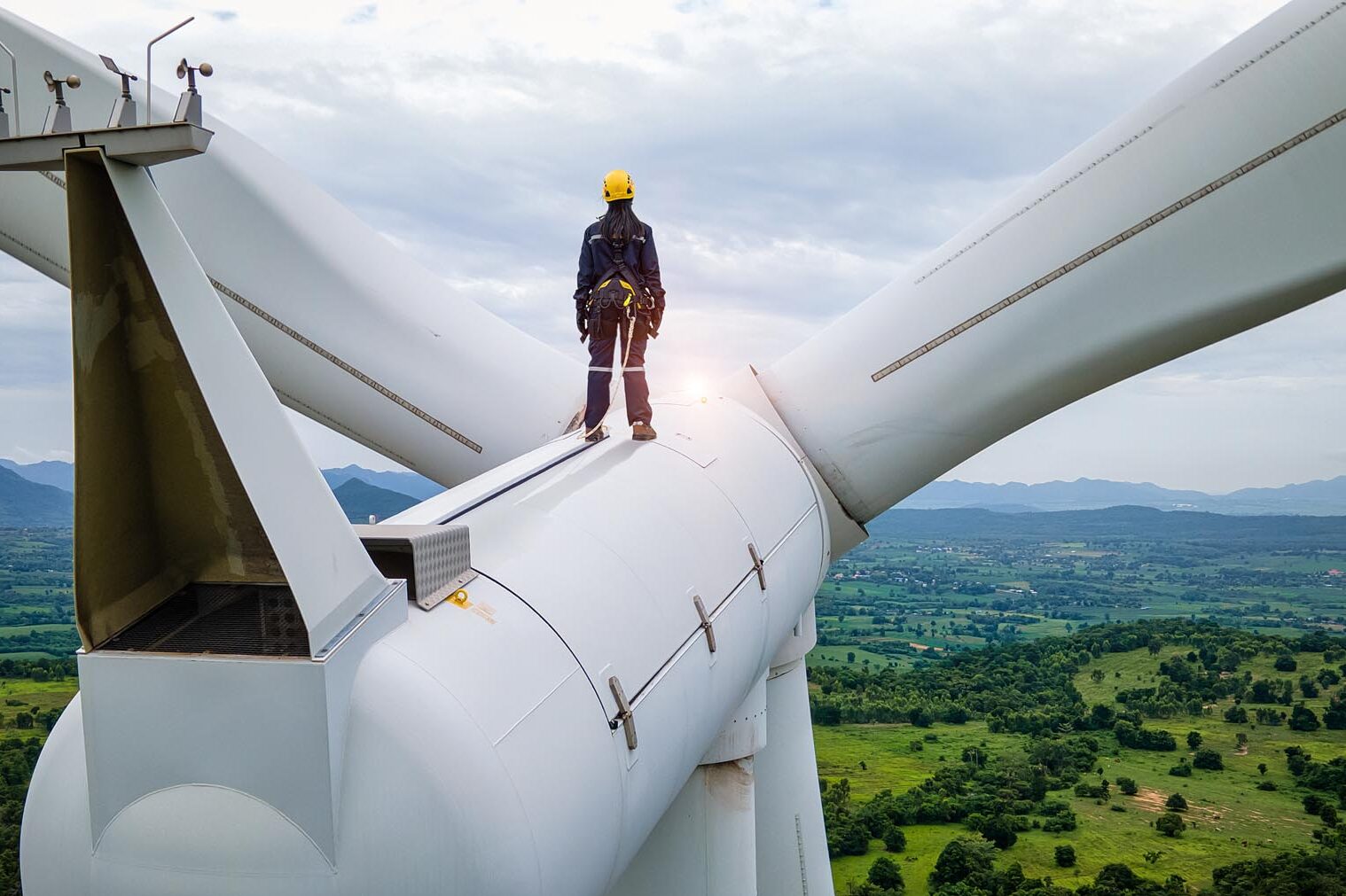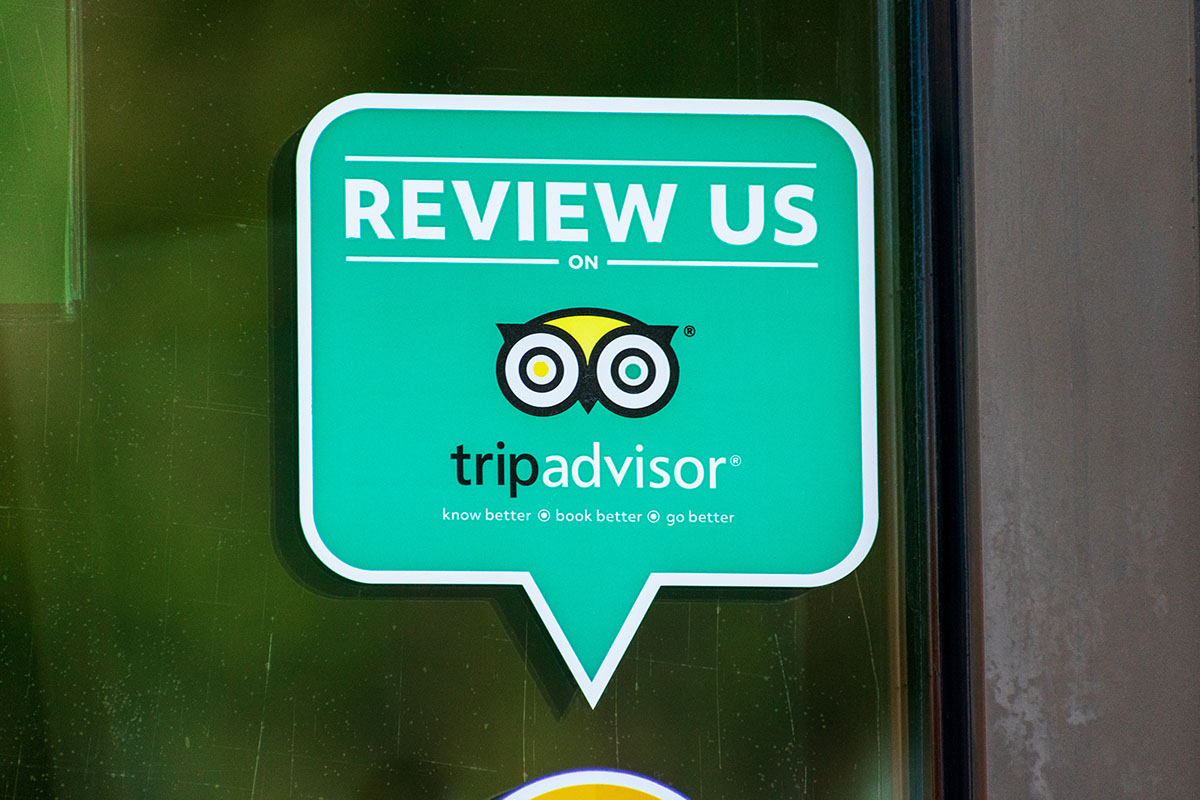Skift Q&A: Airlines and airports should be smarter about Wi-Fi and social media

Skift Take
SimpliFlying CEO and founder Shashank Nigam believes airlines should offer free, onboard Wi-Fi, and that many of airlines and airports are laying their marketing on too thick and clumsily in social media. Nigam presented his views at SITA’s 2013 Air Transport IT Summit outside Brussels today, and Skift caught up with him afterwards.
Skift: You believe airlines should start offering free, on-board Wi-Fi. Why is that?
Nigam: I have a very strong opinion about that. The paid Wi-Fi model right now just breaks. With a $12 fee, neither do you get enough adoption as it’s only around 5%, and that’s not enough to make any money off that. And neither do you provide any sort of customer experience enhancement. So decide: Do you want to make money? Then charge $50 for it. Or do you want to provide a customer service, and then provide Wi-Fi for free.
And, when you provide it free, there are lots of revenue opportunities. Imagine every plane as a marketing node in the sky where you are able to market tours to people flying to Chicago, the boat tours. And people traveling back home from Chicago, you can market grocery shopping. And on every purchase you might make 1%, on Amazon.com, for example. So work with partners, and see how you can leverage this. And, one airline is doing this very well. Mango Airlines in South Africa is using its free Wi-Fi for a customer service. They partnered with Vodacom, which gives them the revenue, and it is a very good ecosystem.
Skift: At one point you mentioned that airlines and airports should get off Facebook and Twitter because they don’t really listen to passengers anyway. What did you mean by that?
Nigam: When I said stop doing that I meant stop doing it as you are doing it right now, which is marketing and addressing the guy on the couch tweeting about you just as much as the the number one frequent flyer who is often ignored just because he doesn’t have as many Twitter followers as the guy on the couch. So airlines should really be refocusing their effort toward customer service, ancillary revenue, and loyalty rather than just generic marketing.
Skift: How does mobile play into these efforts?
Nigam: Mobile is critical. You can’t have a QR code on a bus and when you scan it you go on a full website because, guess what? People are going on their mobile phones to scan. Mobile is critical; 70% access Facebook through mobile so why not your website.
Skift: Which airlines and airports are doing an especially good job in social and mobile and which ones are failing in their efforts?
Nigam: When it comes to customer service, I would say Turkish Airlines is doing well, Delta Air Lines, American Airlines and, of course, we know about KLM. KLM does a phenomental job in terms of brand engagement. They are launching a new Facebook game where you can manage your airline company. You can buy planes, buy slots, manage landings, things there. It is really engaging. KLM does it well. In Asia you have the likes of Air Asia; which is very proactive. Even others like Cathay Pacific, Royal Brunei Airlines, i.e. legacy carriers are doing very well.
Skift: You were talking about KLM and its Facebook game, but that doesn’t really enhance the passenger experience, right?
Nigam: I think it’s a full spectrum. Until now airlines have overdone the branding engagement and marketing side of things. There is a need to balance it with the passenger experience. For example, KLM has Meet & Seat. You can sit next to a LinkedIn or Facebook friend or make introductions. KLM, I would say, is balanced, but most airlines are not. They just do the marketing stuff or run a contest. But, guess what? If you are a low cost carrier and you give away an exit row, and Emirates might come along and give away a first class suite with a shower free, how do you compete with that? So you really must look at who your customers are, what they are doing, and how you can add value to their experience through social media.
Skift: You mentioned that Qatar Airways is doing some really interesting things in its apps from a passenger experience standpoint?
Nigam: I believe Qatar Airways has the prototype iPad app with augmented reality included in it. You can actually point your iPad out of the window and look at what’s beneath and possibly learn more about it on Wikipedia, and even book a hotel perhaps in that place, which may or may not be a partner hotel. You can also schedule your movies, you can schedule your in-flight experience. In two hours I want to have my meal, and in the next two hours I want to watch a movie and this information is potetially communicated to the flight attendant.
Skift: Which airlines or airports really stick out as needing to get their social media act together?
Nigam: Some European ones, which have been very erratic in terms of tweeting. Ryanair is one which publicly refuses to be on social media and says we don’t care about customers. Our price is the product and because of that people will come to us.
Skift: But Ryanair is successful anyway even without social media.
Nigam: Yes, because there is always a new bunch of backpackers who want to go to Valencia for a few days.
Skift: But you don’t think Ryanair’s social media abstinence is an effective long-term strategy?
Nigam: No. You have to go where your customers are. These days 70% of travelers are logging onto Facebook while they are traveling. They are not going to airline.com. Hence you should be be on Facebook in order to engage them while they are traveling rather than just doing promotions when they get back.




